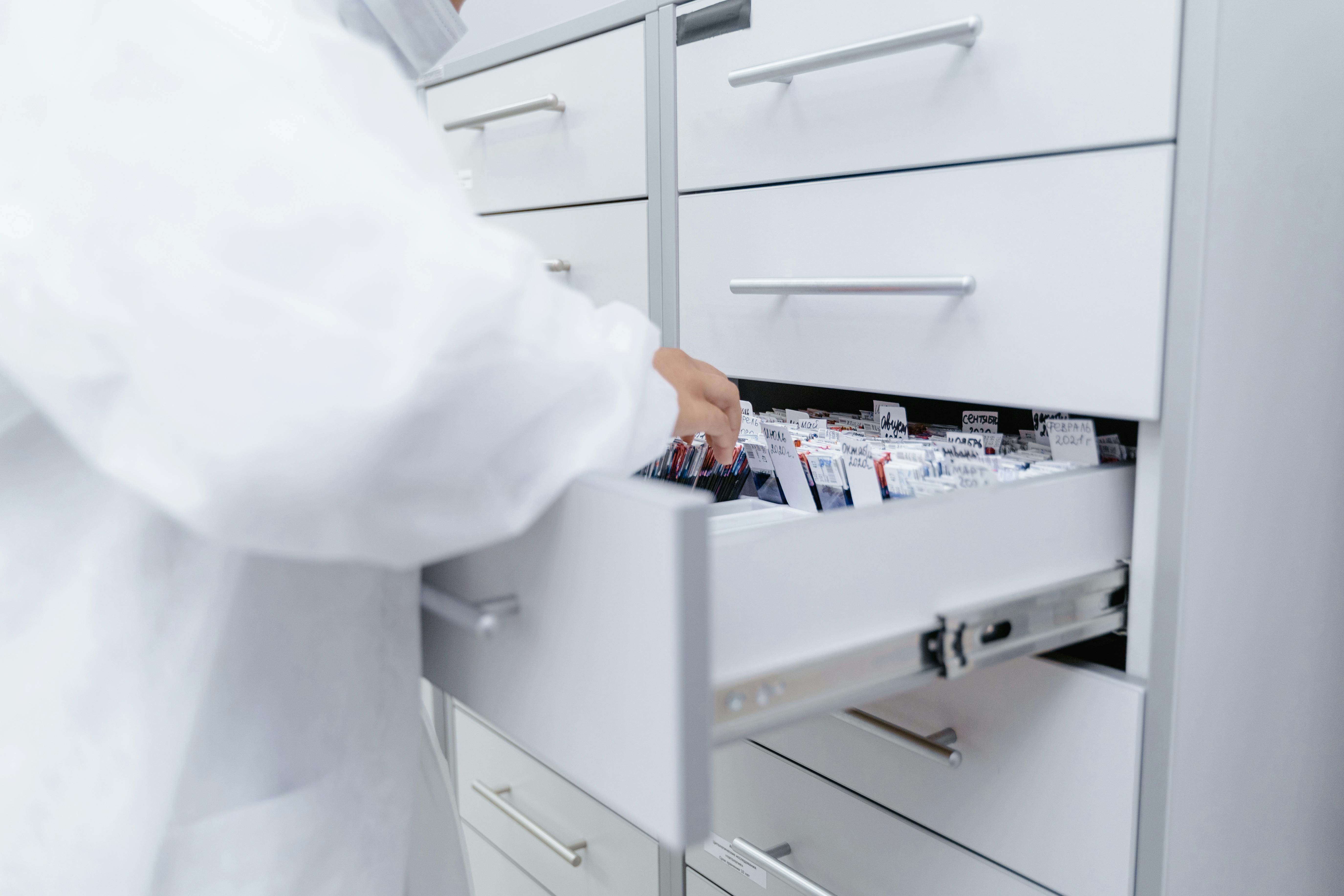
IVF
Does Doing IUI or IVF Mean I'll Definitely Have Twins?
September 16, 2022
Last updated:
October 31, 2024

If you're having conversations with your doctor about doing intrauterine insemination (IUI) or in vitro fertilization (IVF), you're probably hearing a certain word come up over and over again: twins.
Since both procedures could involve multiple eggs or embryos, the chances of becoming pregnant with multiple babies is higher than your average conception—but we're here to tell you that those chances are probably not as high as you think.
Will you have to buy twice the number of diapers? Maybe...we can't predict the future. But we can tell you that your pregnancy will not become fodder for a basic cable reality TV show. Here's why!
IUI actually carries the bigger twins risk...but it's not even that big
Dr. Jane Frederick, reproductive endocrinologist at HRC Fertility in Orange County, California, says about 10% of IUI patients will get pregnant and about 10% of those patients will get pregnant with multiples. That makes the overall chances pretty low, though there's always a possibility of multiples with IUI because the treatment involves taking medication to stimulate egg production. This increases your chances of an egg being fertilized with sperm—which increases your chances of pregnancy—but also means that more than one egg could be fertilized during the whole process.
Here's why you shouldn't freak out, though: Dr. Frederick says your doctor will be monitoring you before giving you the green light for insemination to make sure you didn't produce too many eggs. Most doctors will cancel an IUI cycle if a patient has 3 or more follicles, so while you could in theory get pregnant with twins, a responsible doctor won't put you in a situation where you could have triplets, or quintuplets, or—gasp!—octuplets.

What if I'm planning to do IVF?
Actually, there's not as much left to chance with IVF compared to IUI; you're more in control of the fertilization process. (Well, technically your doctor is the one in control, but you know what we mean). Dr. Frederick says that once your eggs have been fertilized in preparation for IVF, you have the choice to only transfer one embryo, which eliminates the chances of accidentally winding up with more than one baby.
Wait. Doesn't only implanting one embryo reduce my chances of winding up with any baby at all?
That's not necessarily true anymore, thanks to something called pre-implantation genetic screening (PGS), which helps reproductive endocrinologists determine which embryos are most likely to develop into pregnancies. This advance in assisted reproductive medicine reduces the need to put 5 or 6 embryos back into the uterus during IVF.
With PGS, your clinic's lab can genetically test each embryo to see which is the healthiest. This decreases the risk of multiples while increasing the chance of a successful implantation with a healthy embryo.
When might my doctor recommend transferring more than one embryo?
We just told you that genetic testing has eliminated the need for a "let's transfer as many embryos as possible and see how many stick" approach to IVF, but is there ever a time when your doctor might still want to transfer more than one embryo?
Yes—although it's not often and definitely not for everybody. According to Dr. Daniel Kort, a reproductive endocrinologist practicing at Neway Fertility in New York City, the overwhelming trend in the U.S. over the last several years is single embryo transfer (two embryos, max).
"In 2019, I hardly ever transfer more than two embryos," he says. "Our goal is singleton pregnancies, because the majority of twins do well but the rates of maternal and fetal complications are still greater."
That said, Dr. Kort describes the times when your doctor might recommend transferring more than one embryo:
- When the quality of IVF embryos is lower or less likely to result in pregnancy
- When embryos were not genetically tested, so there's some uncertainty about their quality prior to transfer
- When a patient is older, i.e. over 40
- When more than one of these criteria is met at the same time (like if a woman is over 40 and the embryo quality is not stellar)
The health risks of IUI or IVF twins
Look, we're not here to scare you, and your doctor—who actually knows your medical history—is definitely the best person to counsel you on the specific problems you could face when carrying multiples. But you came here for info, so we're going to give it to you!
The biggest health risk when you've got more than one bun in the oven is premature delivery, defined as birth before 37 weeks gestation. This is because babies born early, a.k.a. preemies, are more likely to have physical problems in both the short- and long-term (which could include anything from breathing problems, heart defects, and infections to cerebral palsy, learning disabilities, and vision or hearing loss). According to the March of Dimes, certain fertility treatments may also increase your risk of having a low birth weight baby or one with birth defects.
Dr. Frederick says premature birth is 4 times more likely with twins and 8 times more likely with multiples, so it's unlikely you'll go full-term if you're having more than one baby. All of that said, many preemies do completely fine, and an early delivery is not a guarantee that your babies could have health problems.
Is there anything I could do to minimize those risks?
We'll give you the bad news first: not really. Both Dr. Frederick and Dr. Kort say the only real "treatment," so to speak, for the risks associated with multiples is prevention—meaning that once you're officially expecting double bundles of joy, there's not much that can be done to reduce the chance of complications.
Now for the good news. As you begin your fertility treatments, your doctor is going to be working that whole prevention angle pretty hard, because they really just want you to have a healthy single pregnancy.
"My goal is to proactively try to prevent a patient from having multiples by not transferring more than one embryo [in IVF], canceling Clomid cycles if they look dangerous, and offering intense counseling prior to transfers about the risks of multiples," says Dr. Frederick.
What if I don't really mind the idea of twins?
Hey, we get it. If you're talking about IUI or IVF with your doctor, then you've probably worked really hard and waited a really long time to have a baby. It's not crazy at all to be excited about the possibility of rocking two sweet little bambinos in your arms at the end of this complicated road to parenthood.
That said, you don't want to play it fast and loose when it comes to a twin pregnancy; your health is important, so make sure you're listening to your doctor's recommendations, whatever they are.
So basically, you're saying that doing IUI or IVF won't give me octuplets?
Yup, thats what we're saying. But seriously, talk to your doctor if you're still nervous about having twins...they can definitely make you feel better about the odds.



Sarah Bradley
Sarah Bradley is a freelance writer, editor, and creative writing instructor from Connecticut. In addition to writing for various print and online media outlets, she teaches fiction, poetry, memoir and family legacy writing to adults around the state. With over a decade of experience, Bradley offers classes and workshops online and through libraries, adult education centers and other Connecticut community locations. Bradley prides herself on her community involvement, and also engages in freelance writing for her local town, conducting interviews with town officials, residents, and small business owners, writing weekly spotlight articles featured on the town website, writing press releases, posting program updates to social media sites, blogging for their community arts program, writing promotional materials, and more. In the past, Bradley also worked as a Communications Coordinator at Boston Children’s Hospital. She lives with her husband and three young sons, and is currently writing her first novel. Bradley also considers herself a homeschooler, devoted baker, and lover of all things DIY.
Read more from
Sarah Bradley








